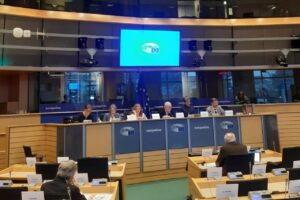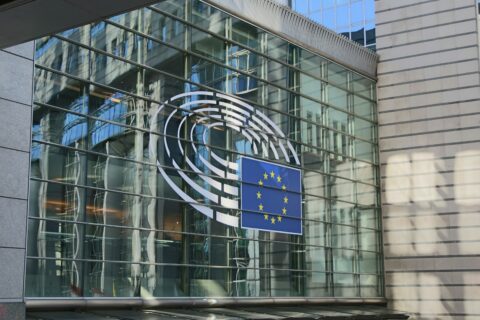Thomas Demmelhuber at the European Parliament: Autocracies and Elections
Expertise in the Human Rights Committee of the European Parliament
In summer 2022, the Human Rights Subcommittee decided to prepare a Recommendation to the EU Council, the Commission and the HRVP (Josep Borrell) on how to respond more effectively to undemocratic elections in autocracies. To support the rapporteur (MEP Nacho Sánchez Amor), the Human Rights Subcommittee invited Prof. Dr. Thomas Demmelhuber and Prof. Dr. Richard Youngs (Warwick) to give two briefings on how autocracies instrumentalize elections and how the EU should respond (Brussels, 25 January 2023).
Demmelhuber highlighted in his talk the key trend of autocratization as point of departure. 70% of the world’s population lives under autocratic rule, and the liberal international order built on multilateralism, rule-based cooperation, and peaceful conflict resolution is facing stress factors, with new actors trying to influence the ecology of the liberal order and presenting autocratic “languages of government” as superior.
 Demmelhuber identified four domestic functions of elections in autocracies. Elections allow, for example, limited spaces for contentious politics and set the stage for controlled pluralism. Elections can include licensed opposition parties, contribute to elite cohesion by setting up networks of privilege and may also serve as a barometer of regime support and capacity.
Demmelhuber identified four domestic functions of elections in autocracies. Elections allow, for example, limited spaces for contentious politics and set the stage for controlled pluralism. Elections can include licensed opposition parties, contribute to elite cohesion by setting up networks of privilege and may also serve as a barometer of regime support and capacity.
In view of the international area, Demmelhuber stressed the importance of a “mock compliance strategy”, which he referred to as the new “gold standard” of electoral processes in authoritarian contexts. Other authoritarian actors confirm that elections took place in a free and fair environment, which leads to a watering down of international standards of election observation. Regimes invite fake election observers, sometimes alongside genuine independent observation missions, to get the democratic stamp and crowd out critical messages
The briefing papers on which the expert hearing was based will soon be published by the EU Parliament. The recorded meeting is available here.
